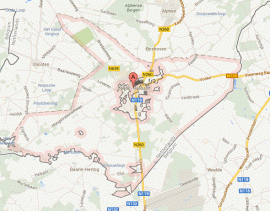
A jolly piece in the Spectator, inspired by the dispute over Gibraltar, reports on strange borders around the world. What look like neat lines on maps often turn out, on closer inspection, to be rather more complicated.
The town of Point Roberts is separated from the rest of the United States by 40 minutes’ drive through Canada. Büsingen am Hochrhein in Germany is really in Switzerland. Baarle-Nassau in the Netherlands has territory within Baarle-Hertog in Belgium within Baarle-Nassau again.
Borders are not necessarily based on economic or social logic. They can derive from ancient rules of private ownership, or dynastic marriage, or poorly-worded international treaty, or ignorance of the territory being divided up, as much as from popular will or the benefits of trade.
Borders are an essential tool in governance: where does the power of one government finish and the next one begin? But because they come from such odd sources, it would be a mistake to elevate them to a matter of moral or spiritual significance. No, the existence of a border is an administrative matter, and should be subject to the normal rules of politics in deciding whether and where it should be drawn.
